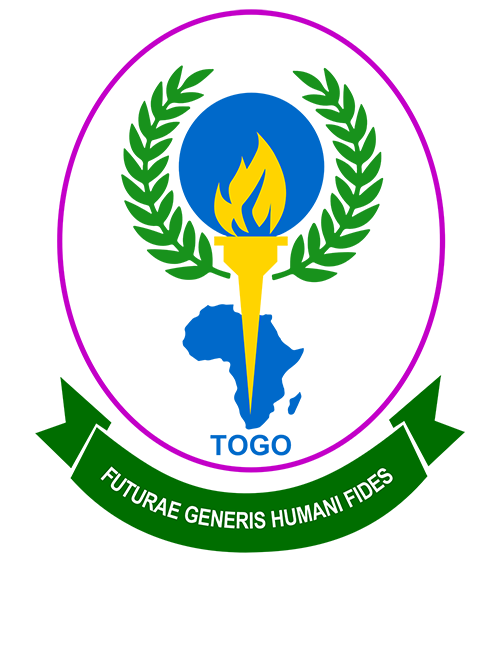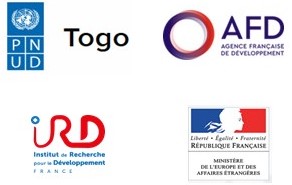Circulations in the global South: Ethnographic explorations of globalized exchanges
APAD International Conference
Lomé, 29 November – 3 December 2021
The Conference
After the Roskilde conference in 2018, devoted to mobility and migration, APAD proposes for its 2021 edition to focus on the multiple forms of large-scale circulation of goods, ideas, techniques, information, and models that increasingly cross the Global South and link it to the rest of the world. We want to discuss the contribution of the anthropology of development to the fields and themes that are at the heart of the “global turn” in the social sciences. How does the anthropology of development consider the dynamics of globalization?
The conference has been co-organized with the Department of Anthropology and African Studies of the Faculty of Human and Social Sciences (FSHS) of the University of Lomé (Togo).
Initially scheduled for June 2020, the conference was postponed twice due to the COVID-19 crisis. In this context, the event has been held in a hybrid format with 135 participants – half of them in person in Lomé – divided into 22 thematic panels. The short final programme and the Full Programme can be found here. Details of the panels and abstracts of the papers are available here.
On the first day of the conference (29 nov, 1 to 2 pm, UCT), Nina Sylvanus, professor at Northeastern University, Boston, gave the opening lecture, entitled Harboring History, Historic Harbor: Circulation, Past and Present.
A round-table discussion on “Colloque APAD-Flyer Table Ronde COVID 19 en Afrique“ will take place on Friday 3 December from 2 to 4 pm (UCT).
Just after the closing of the conference, between 4:30 and 6:30 pm (UCT), the traditional General Assembly of APAD has been held.
For any question: colloque@apad-association.org.

APAD Conference is organized with the Faculty of Social Sciences
(Lomé University)


and with the financial support of UNDP Togo, the French Development Agency, the Institute of Research for Development, the French Embassy in Togo and EHESS.
The Call for Papers is open untill 20 February — CLOSED.
Proposals should preferably be submitted to the following selected panels.
It is also possible to submit proposals for contributions on topics not covered by the panels provided that they clearly relate to the areas of reflection of the conference (see the full conference argument) :
- Path, places and actors of circulation?
- Regulations and (geo)political reshaping
- What happens to things in circulation?
- The local consequences of global circulations
- The fieldwork of circulations
You will receive a receipt confirmation and your proposal will be sent to the panel organizers and the organizing committee.
NOTE: the procedure has changed compared to the call for papers previously distributed: from now on, communication proposals do not have to be sent directly to the panel organizers.
** New Dates **
(27/09/2021)
20 September 2021: online registration opens
10 October 2021: final programme
7 November 2021: registration deadline
15 November 2021: deadline for submission of papers
Ayimpam Sylvie, Aix-Marseille Université, France
Baxerres Carine, IRD, France
Blundo Giorgio,EHESS/IRD,France/Togo
Chalfin Brenda,University of Florida,USA
Choplin Armelle, Global Studies Institute, Université de Genève, Suisse
Goéh-Akoué Michel, Université de Lomé, Togo
Guézéré Asogba,Université de Kara,Togo
Kibora Ludovic Ouhonyioué, CNRST/INSS Burkina Faso
Kossi-Titrikou Komi Emmanuel,Université de Lomé, Togo
Lesourd Céline, CNRS, Marseille, France
Maizi Pascale, SUPAGRO, Montpellier, France
Muñoz José Maria, Center for African Studies, Université d’Edinburgh, Grande Bretagne
Nugent Paul, Center for African Studies, Université d’Edinburgh, Grande Bretagne
Ouattara Fatoumata, IRD, France/Togo
Petric Boris, CNRS, Marseille, France
Stanziani Alessandro, EHESS, France
Storeng Katerini, University of Oslo, Norvège
Sylvanus Nina, Northeastern University, Boston, USA
Tidjani Alou Mahaman, Université de Niamey, LASDEL, Niger
Amouzou-Glikpa Amevor, Département de sociologie/ Université de Lomé
Apeti Saturnin, Département de sociologie/ Université de Lomé
Awesso Charles, Département d’anthropologie/ Université de Lomé
Blundo Giorgio, IRD EHESS, Lomé
Boutinot Laurence, CIRAD, Montpellier, France
Deridder Marie, UCL, Louvain la Neuve, Belgique
Douti Mireille, EHESS, Paris, France
Elieth Eyebiyi, Lasdel Bénin, Abomey Calavi, Bénin
Gogoli Ablavi Julie Esseyram, Département d’anthropologie/ Université de Lomé
Hountondji Roland, Département d’anthropologie/ Université de Lomé
Koumi Abel, Département d’anthropologie/ Université de Lomé
Lavigne Delville Philippe, IRD/Université Gaston Berger, Dakar, Sénégal
Lawani Ayemi, Université de Kara
N’Djambara Mohamondou, Département d’anthropologie/ Université de Lomé
Mazzocchetti, Jacinthe, Université Catholique de Louvain, Belgique
Ouattara Fatoumata, IRD, Lomé
Palassi Konga, Département anthropologie, Université de Lomé
Passinda Laurent, Université de Lomé
Poncelet, Marc, Université de Liège, Belgique
Toudeka Marie-Reine, URD/Université de Lomé
Vampo Charlotte, IRD UMR Ceped, Paris
Waharé Jules, Département d’anthropologie, Université de Lomé
With the support of





Paths, places and actors of circulations
What are the paths, circuitsorroutes of globalized circulations? Which transnational networks support them? What are the connection points, which play the role of hubs, nodes of confluence and distributionof flows of goods, technological knowledge, entrepreneurial visions, development models, representations,ornorms? To what extent do these connection point salso become new places of power? Who are the actors of these large-scale circulations; organizing, feeding, controlling, regulating or opposing them? How do they fit into these flows? What intertwining of personal or collective histories is created throughout transnational circulations? What are the ambivalences observable in the ebb and flow induced by the trajectories of ideas and things? Circulations do not permeate territories and societies uniformly and without discontinuities. Connections are blocked; disruptions occur in supply chains or aid flows; regions or social groups are permanently “disconnected”. Some roads or circuits are disappearing or falling into disuse, others are emerging to overcome blockages or disruptions. What are the places, social groups, or even tangible or intangible goodsthat have remained or
are kept away from circulation? What geopolitical, economic, social or historical factors determine these exclusions?
Regulations and (geo)political reshaping
A common question emerges aboutthe role played by international governance organizations in the standardization and global dissemination of normsand regulations (in international trade, environmental protection, good governance, human rights, women’s empowerment, industrial production, intellectual property, public health or education policies, the combatingoffraud, etc.), and their articulation with the agendas of national political and economic actors (political authorities, public administrations, trade unions, economic lobbies, NGOs, etc.). What are the effects of the acceleration of the circulation of globalized goods, ideas and norms on local and national political (im)balances? What political or legal factors favor circulations? Which others slow them down or hinder them? To what extent and through what processes does inclusion in global connection strans form the political influence of actors (whether they be importers, consultants, political activists or artists)? Do the new transnational actors have a different relationship with the State and politics than the local economic elites they compete with? Finally, what is at stake in the current strengthening of partnerships, official and/or private, between countries of the Global South?
What happens to things in circulation?
Unlike the notion of transfer, thatof circulation makes it possible to characterize non-linear, colliding movements,andmutations of trajectories and paths. It also refers to unplanned temporalities and processes. Some panels mayfocus on the complex processes of transformation, adaptation and even transfiguration that occur during the circulation of “things”. Whatnew meanings or values do they acquire according to the uses assigned to them during their journey? While the countries of the South are confronted with a massive influx of mass-consumptionproducts and universal models (whether mobile phones or public policy instruments); what are the social mechanisms that determine their appropriation, domestication, vernacularization or, on the contrary, rejection? Empirical reflections based on the processes of mixing and hybridization might also feedintothe panels
The local consequences of global circulations
What impacts have the intensification of connections and large-scale exchanges on the daily lives of the social groups and territories whichare implicated? What are the local effects of the arrivalon African markets of a wide range of accessible manufactured products from Asia? What are the implications for local production and consumption systems? What are the visions and social practices associated with the entry of large segments of urban populations into the era of mass consumption? What are thechanges in lifestyles? What are the political and economic practices and imaginaries of the actors linked to transnational circulations? Do their travel and trade experiences have an impact on their visions of economic development and entrepreneurial practices? And conversely, what does the insertion in distant circulations of “typical home-grown products”produce? Are there forms of mobilization expressing resistance, contestation, criticism, or concern about the new inequalities created by globalized capitalism?
The fieldwork of circulations
Fieldwork intransnational settingsr aises questions about its epistemological and methodological implications of relevance to all potential panels. The tracking of a commodity-ora technique, a model, a vision, ora repertoire of collective action-fragments the field into a vast repertoire of actors, act ants and situations belonging to transcultural and transnational social, cultural and political spaces. In addition to debates about multi-scalar studies, the multi-site dethnography of global phenomena asks for a critical rethinking of the place of cultural areas, and forms of comparison,and the need for scholarship and specialization that is closely associated with it. The fragmentation of fieldwork specific to an ethnography of circulation inevitably leads researchers to question their own viewpoint – to ask oneself where does it come from? – and the modes of analysis and presentationof research.

